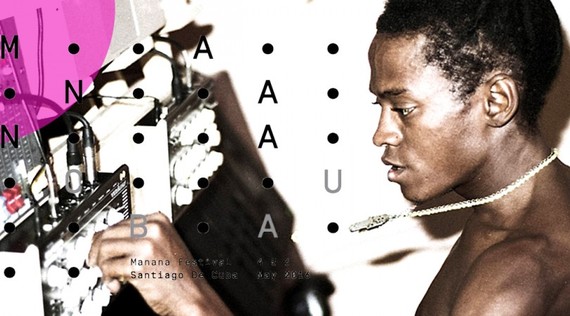Cuba has been on a lot of minds lately. Especially mine. I have frequented the island four times, and have seen the "stuck in time" tourism spiel and more importantly, the day to day life of Cubans. "No es facil." A phrase, I have heard on many lips on every trip. I have seen new interest catapulting many to the island, as well as old interests, re-imagined, with the relaxed U.S. restrictions. To be clear, travel to Cuba was never illegal, dictating where people can and cannot go was deemed "unconstitutional." It was the spending of U.S. dollars (in a supposed Communist country), that was unlawful. My timeline has been inundated with new #InCuba social media snaps, statuses and blog posts, ranging from fanatical anti-imperialist idolatry finally realized...IN REAL LIFEEEEEEE!!!!!! (yes, I am including myself in this)... to poverty porn, a romanticization of the daily and extremely difficult struggles Cubans living in Cuba face. Whatever your stance on Cuba is, one fact is undeniable, the Cuban people got heart. A lot of it.
Manana means "corazon." Heart in English. Someone who is well-trained in their musical craft. This is what the Manana Cuba team is striving to build alongside Cuban musicians in Santiago de Cuba. An environment that comes from the heart of AfroCuban folkloric musical expressions plus innovative electronic musical methodology to the world. I was sent information on the festival by my relentlessly passionate, artist advocate, #DIASPORADICAL friend Natalia Linares - a phrase she's concocted to represent Diaspora babies and immigrant children leading hybrid identities in the digital age all over the world. She is working as a partner with MANANA CUBA as their U.S. rep. She got in touch with organizers after learning about the festival through Puerto Rico-based electronic rumba outfit ÌFÉ - one of the earliest international acts to confirm for the festival - on a Saturday, and by Sunday they were working together as partners.
That free-flowing connection was telling and a, "powerful indicator about the potential of my generation to co-create new solutions collectively with one another through the real relationships we're cultivating online." Linares continued,"the current paradigm of the LARGE! SPONSOR-DOMINATED! FESTIVALS! - recycling homogeneous and select acts who have access to the power structure within the modern music business at the expense of marginalized artists who inspire the trends anyway - does not encourage exchange among artists, but instead distances artists from the audience. Manana is based on collective visioning which serves the actual art, the people who make it and communities they come from."
I was immediately intrigued that something Cuban...actually had...umm...Cubans centered. There are individuals and collectives who are building through cultural exchange with this in mind such as, Skate Cuba, Nuestra Cuba,
TIMBALONA,Tambor, and District of Cuba.
Manana Cuba invites us all to just this in person.
I spoke with one of the festival's creators and organizers, Londoner, Harry Follet about the project. After meeting Cuban musician, Alain Garcia Ortola, in London and sharing and producing music with him, he decided to quit his job and went to study percussion on the island. Music was always integral in Harry's life and his interests are around electronic music. "Electronic music culture in London is like a social thing, you go to a friend's house with your gear and jam." He did just this on his 6-month study in Cuba.He started in Havana and ended up in Santiago, the heart of AfroCuba.
Harry collaborated with Alain and other Santigueros in that same social way, and wanted to to take that experience and "blow it up." This vision is the MANANA fest, currently in their last week of fundraising and taking place May 4-6, 2016, right in its birthplace of Santiago de Cuba. He says the festival will be extremely accessible to Cubans and has limited the number of foreign tickets. He explained the price that non-Cuban citizens pay will subsidize the cost for Cubans. A necessity, as the average monthly wage is between $20-$40USD. Follet said that the Cuban government has been genuinely supportive of MANANA's vision.
"We are working on creating a sustainable studio in Santiago de Cuba that will be run by Cubans after the festival." Harry said it was important to build something collectively that will remain after the team left and envisions the MANANA festival as an annual event. He saw how great of a power music has in Santiago. " It connects people to their community, religious beliefs, family and their own physicality. It is less about individualism perhaps, and more about a collective sense of expression, identity and purpose. Music has a real function for people in Cuba, something which is perhaps being lost elsewhere." With the the fest and initiative being in the "musical heart of Cuba," Santiago, Ortola says that with the changing relations between Cuba and the world, it is "at this time that we need to preserve our cultural roots" a challenge in modern changing times. This is especially salient after more than half a century as one of the last and only theoretical strongholds against imperialism.
Follet states just how fascinating AfroCuban folkloric music has been so well preserved and "is such an important part of the modern identity of young Cubans, informing the evolution of modern music on the island. It binds musicians together across genres and gives them a sense of identity. On my morning run through Santiago I would pass a nursery where 2-year-olds would be having Son and Rumba clave lessons each morning. I could tell on the childrens' faces they already knew how important these rhythms were to understanding the culture they were growing up in." With the exploding interest in U.S. citizens getting to Cuba, the manifestations of AfroCuban culture, from Cubans themselves, is important for short term visitors to understand as well.
Support MANANA Cuba here. Campaign ends on Friday.
